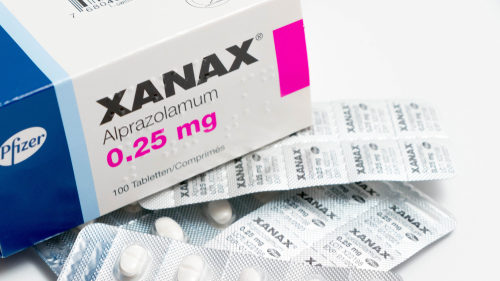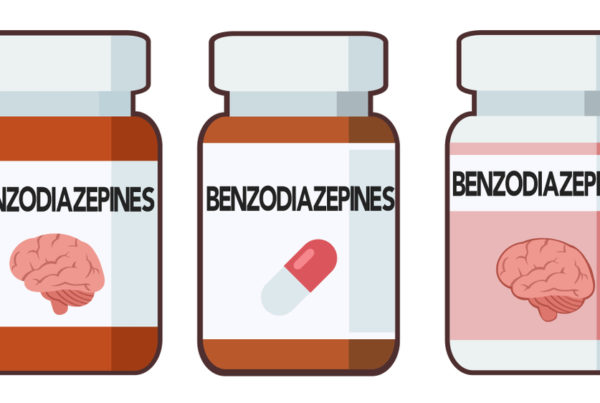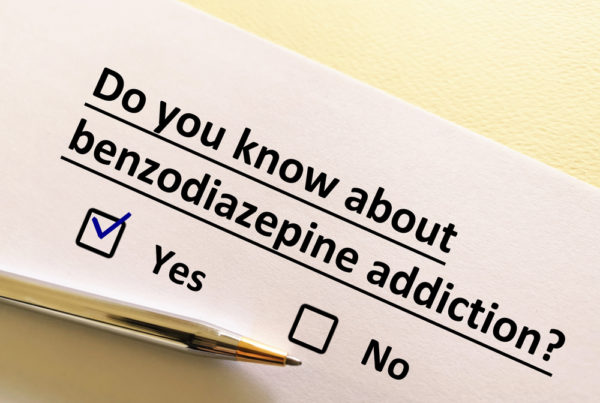Benzodiazepines, colloquially referred to as benzos, are a class of psychoactive drugs prescribed in America that is often used for the treatment of anxiety, panic disorders, muscle spasms, and seizure disorders. They are man-made medications that work by affecting one’s neurotransmitters, enhancing the effects of GABA (gamma-aminobutyric acid) in the brain. GABA is a neurotransmitter that blocks impulses between nerve cells in one’s brain. Benzodiazepines increase GABA, which in turn reduces brain activity. Although benzodiazepines are classified by the United States Drug Enforcement Administration (DEA) as Schedule IV Controlled Substance, meaning they are “defined as drugs with a low potential for abuse and low risk of dependence,” benzos can be habit-forming and lead to addiction.
Withdrawal Symptoms
Since benzodiazepines work by adjusting one’s brain functioning, when one’s system lacks the abused substance, it can result in the development of withdrawal symptoms. One’s withdrawal experience will depend on several factors such as the length of time a person abused benzodiazepines, the dosage abused, if he or she simultaneously used or abused other substances, his or her personal health history, and any possible comorbid diseases, etc. The severity of withdrawal symptoms an individual may experience will be distinct to each person. Common examples of benzo withdrawal symptoms could include, but are not limited to, any combination of the following examples:
- Heart palpitations
- Dizziness
- Sweating
- Nausea
- Vomiting
- Anxiety
- Panic attacks
- Insomnia
- Headaches
- Shaking
- Dry heaving
- Agitation
- Irritability
- Seizures
- Diarrhea
- Increased heart rate
- Depression
- Difficulty concentrating
- Muscle pain, stiffness, and/ or weakness
- Sleep disturbances
- Elevated blood pressure
Withdrawal symptoms will typically start within six to eight hours after a person has taken his or her last shorter-acting benzodiazepine dose, and between twenty-four to forty-eight hours after a person has taken his or her last longer-acting benzodiazepine dose. The length of time an individual may experience his or her withdrawal symptoms can last between seven days to three months long, in some cases longer. Benzo withdrawal is not permanent. Although those who are actively in the process of detoxing from benzodiazepines may find it difficult to imagine a world without enduring acute withdrawal symptoms, in time they will subside.
For Information and Support
If you are concerned for yourself or a loved one regarding substance abuse and/ or addiction, we recommend reaching out for help as soon as possible. If left untreated, substance abuse can result in long-lasting and potentially life-threatening consequences. Keep in mind: you are not alone! There is an entire network of professionals that are available to help and support you and your loved one throughout the recovery process. The earlier you seek support, the sooner your loved one can return to a happy, healthy, and fulfilling life.
Please do not hesitate to reach out with any questions regarding our specific program at Haven House Addiction Treatment and/ or general substance abuse and/ or addiction treatment-related information. Our highly trained staff is readily available to discuss how we might best be able to help you and your loved one. We can be reached by phone at 424-258-6792. You are also welcomed to contact anytime us via email at admissions@hhtxc.com.



